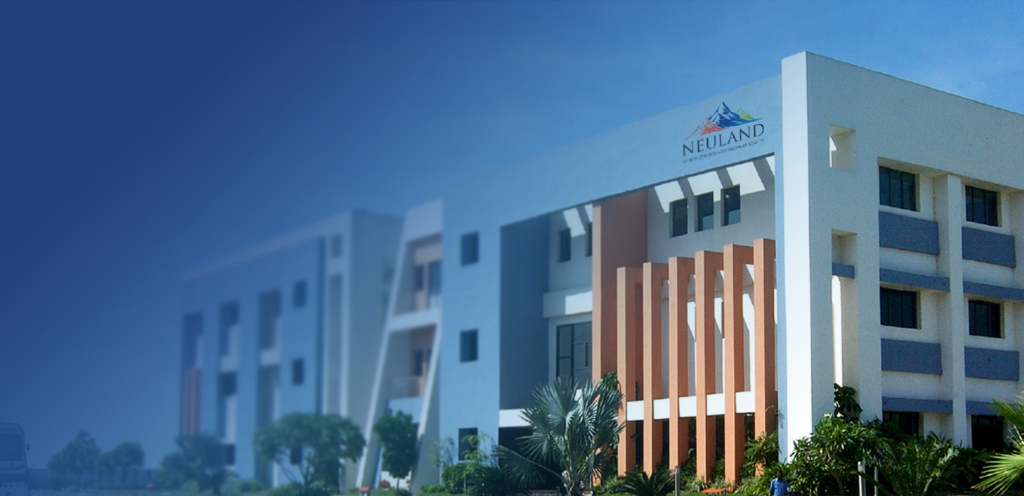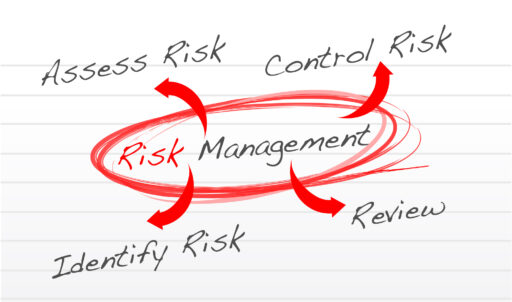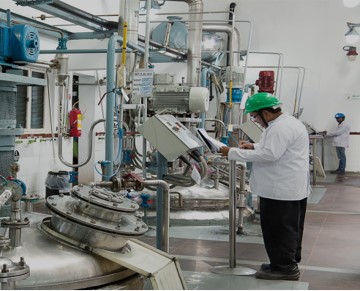Congratulations! The last three years have been a Ph.D. in Supply Chain Disaster Management for Supply Chain teams!

It’s undeniable that the last few years have highlighted a variety of risk factors which can dramatically impact the pharmaceutical industry.
In this ever-evolving environment, effective risk management processes are essential to keep supply chains running smoothly. They can also help achieve other strategic and operational goals.
 Recognizing this, over the last year Neuland Labs has undertaken an Enterprise Risk Management (ERM) enhancement program. The objective was to ensure we had a comprehensive system for identifying risks and monitoring mitigation plans in place.
Recognizing this, over the last year Neuland Labs has undertaken an Enterprise Risk Management (ERM) enhancement program. The objective was to ensure we had a comprehensive system for identifying risks and monitoring mitigation plans in place.
Neuland’s board approved a new ERM policy, quantitatively rating a variety of risks based on severity and likelihood, while adding an additional layer of analysis and review. Risk identification workshops were held across our organization, which led to an expansion of the potential threats and challenges assessed by the program.
Some of the key risks addressed by the program are listed below, along with steps the company is taking to mitigate them.
- Supply Chain Risk
As everyone now understands, supply chain risks are a critical issue across the industry. One particular area of concern – not just in India, but also in the U.S., EU and elsewhere – is the level of dependence on China for imports, especially in API manufacturing.
Since any production disruption can seriously hamper our client base, controlling supply chain risks is one of our top priorities. As a result, our aim has been to continuously diversify and reduce our distance from suppliers, working in close coordination with our sales and R&D teams for raw material planning and availability.
As a result of these efforts, we’ve already reduced our global dependence for raw materials to 13%. We are working to reduce this dependency even further (to less than 10% by FY 2022–23) through ongoing geographic de-risking efforts. In addition, we’re working to create two or more active and dependable sources for Key Starting Materials (KSMs) and critical intermediaries, manufacturing them domestically or in-house when possible.
- Intellectual Capital Risk
Human capital is key to our R&D and operations, ensuring business sustainability and growth. As you know, it is particularly important in today’s labor environment.
We’ve enacted HR policies designed to ensure sufficient highly qualified staff. Employees who show promise for greater work responsibilities are internally promoted and provided with training and skill development programs. In-house talent is also considered for middle and senior managerial roles, though we’ll recruit from outside sources if necessary.
We work to maintain and increase employee satisfaction with an open-door policy, healthy work environment, job rotation and other initiatives for retaining talent. In addition, we’re working to attract talent from abroad, multinationals, post-doctoral programs, and the chemical engineering cadre.
- Regulatory Risk
In recent years, we’ve seen an increased dependence on regulated markets for revenue, making non-compliance a potential threat to operations. In response, we emphasize health & safety – and boast multiple global certifications (some of which we exceed).These initiatives include a growing investment in automation of quality management systems and monitoring of metrics through QA Dashboards to enhance efficiency and accuracy. High standards of regulatory compliance are promoted across all operating units, and any customer issues are handled through a structure designed to ensure that any incidents are not repeated.
 We have established a stringent internal monitoring and review mechanism. All exceptions are directly communicated to the CEO and/or Quality Head. We have also initiated third-party quality audits.
We have established a stringent internal monitoring and review mechanism. All exceptions are directly communicated to the CEO and/or Quality Head. We have also initiated third-party quality audits.
- Product Scaling Risk
Product portfolio expansion is imperative. We work to ensure seamless scalability of products from R&D through to our manufacturing units. Any product scaling issue could potentially cost the company a new or existing customer. Detailed checklists are used, confirming that every aspect of the process is done right the first time to ensure unified product transfer.
- Geopolitical Risk
Trade conflict between any two countries has a direct or indirect bearing on economies globally. Our wide geographical footprint ensures our operations are not heavily impacted by disruptions in any single economy. We have also diversified our supplier base to ensure uninterrupted supply in the event of unforeseen circumstances.
- Competition Risk
Intense competition and mature product portfolios can have a negative impact. Our mitigation strategy includes dynamic life-cycle management, as well as a focus on both maintaining our current customer base and nurturing new partnerships.We are exploring innovative areas to serve new clients and we are targeting larger volumes for specific molecules.
- Emergency & Unforeseen Events
Agile practices and operating models enable organizations to solve specific problems quickly and efficiently. During the COVID-19 pandemic, we’ve proven our ability to face challenges with minimal impacts on operations.The agility and foresight of our ERM team enables us to initiate a prompt and adequate response to any unforeseen risk. The team closely monitors rapidly evolving consumer behaviors and demand patterns, anticipating potential reconfiguring of strategies, structure, processes, people, and/or technology.
Neuland actively works with alternate raw material suppliers, tracking re-opening schedules, clubbing shipments, monitoring outstanding receivables, truck transit and arrival closely and more to ensure efficient supply chain management. In some cases, it is important to consider stock accumulation risks and whether stocks should be built up for various geographies given the risks of supply chain recovery due to an unforeseen event.
Risk management aims to control future outcomes by proactively identifying the possibility of a risk occurring, determining what its potential impact could be, and developing strategies to mitigate or avoid those risks. Effective risk management gives Neuland the resilience as a preferred and reliable business partner to help our customers succeed in an unpredictable environment










